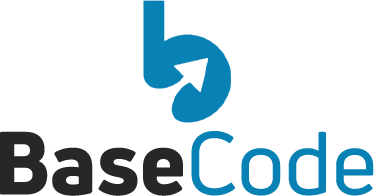When Nigerian business owners and sales managers explore customer relationship management tools, Zoho CRM often comes up as a top contender. But one of the most important questions that follows is: how much does Zoho CRM really cost for Nigerian businesses? With rising operational expenses, currency fluctuations, and the constant need to stay competitive, understanding the actual cost and value of a CRM tool like Zoho is crucial for making the right decision.
This guide breaks down Zoho CRM’s pricing in a way that’s easy to understand, especially for SMEs in Nigeria. We’ll explore the plan options, what you get at each level, how affordable it is in Naira, and how to maximise your investment.
Why Nigerian Businesses Are Considering Zoho CRM
Many Nigerian businesses, especially SMEs, are at a point where spreadsheets, manual follow-ups, and disjointed systems are no longer cutting it. As customer expectations rise and sales teams grow, a proper CRM is no longer a luxury but a necessity.
Zoho CRM has gained popularity because of its flexibility, local support, and relatively affordable pricing. It helps Nigerian companies:
-
Track leads and customer interactions more effectively.
-
Automate repetitive sales tasks.
-
Collaborate across sales, marketing, and support.
-
Make smarter decisions with real-time analytics.
-
Improve the overall customer experience.
Unlike some international platforms that are priced beyond the reach of smaller teams, Zoho CRM is designed to grow with your business, offering both free and affordable paid plans.
People also like to read Why Your CRM Migration to Zoho Fails And How to Fix It
Zoho CRM Pricing Tiers (Explained in Naira)
One of the first questions Nigerian SMEs ask is, “How much will this really cost me?” Unlike tools that list prices only in US dollars, Zoho CRM offers real Naira rates when you work with a local partner like Basecode. These figures are billed annually and reflect true local pricing:
-
Standard: ₦3,600 per user per month
-
Professional: ₦6,000 per user per month
-
Enterprise: ₦10,500 per user per month
-
Ultimate: ₦13,500 per user per month
These prices make Zoho CRM one of the most affordable CRM tools available to Nigerian businesses, especially when you consider that competing platforms often charge in dollars and do not offer local billing flexibility.
What You Get with Each Plan (Free vs Paid)
Here’s how each plan stacks up, what features are included, and who would benefit most:
Free Plan (up to 3 users)
Great for solo entrepreneurs or tiny teams. You get basic contact and lead management, tasks, web forms, email templates, and access to the mobile app. It’s a useful starting point, although it lacks advanced features like automation, detailed reporting, or AI support.
Standard Plan – ₦3,600/user/month
Ideal for small teams ready to organise their sales process. You’ll unlock multiple sales pipelines, lead scoring, custom dashboards, workflows, and email insights.
Professional Plan – ₦6,000/user/month
Designed for growing businesses stepping into automation. Adds inventory management, process blueprints, sales signals, workflow validation, support for customer portals, and Google Ads integration.
Enterprise Plan – ₦10,500/user/month
Offers advanced customisation and data tools. Includes AI-driven sales predictions and insights from Zia, multi-user portals, CommandCenter for building customer journeys, and deep automation tools.
Ultimate Plan – ₦13,500/user/month
Our most advanced tier, including all Enterprise features, plus priority support, enhanced storage, a dedicated database cluster, and Zoho Analytics for deeper data insights.
Is Zoho CRM Affordable for SMEs in Nigeria?
Let’s be honest, pricing matters, especially in the Nigerian business environment, where exchange rates and inflation impact decision-making. So, is Zoho CRM affordable?
The short answer: Yes, if you approach it strategically.
Here’s why:
-
You can start with the free version and only upgrade when you need to.
-
Zoho CRM charges per user, so you only pay for the team members using it.
-
Compared to Salesforce or HubSpot, Zoho CRM delivers similar features at a fraction of the price.
-
Nigerian businesses working with local Zoho partners may enjoy tailored pricing support, onboarding assistance, and flexible payment options.
Instead of seeing it as an expense, it’s better to think of CRM as an investment in growth and efficiency. A well-implemented CRM helps you close more deals, retain customers longer, and work smarter, all of which improve profitability.
Read more like Zoho CRM vs Pipedrive: Which Is Best for Professional Services?
Tips to Get the Best Value from Zoho CRM
To make the most of your CRM budget, consider the following tips:
1. Start Small and Scale Gradually
Begin with the free or standard plan and only move up when your team is ready. Avoid paying for features you’re not using yet.
2. Work with a Local Zoho Partner
A Nigerian Zoho partner like Basecode can help you identify the best plan for your business and avoid costly mistakes. You’ll also get local training and support, which global customer service can’t always provide.
3. Automate Strategically
Zoho CRM’s automation features can save you time and reduce overhead. Use them to automate lead assignments, follow-ups, and reporting so your team can focus on high-value work.
4. Train Your Team Properly
One of the biggest reasons CRM tools fail is poor user adoption. Make sure your team knows how to use the features you’re paying for.
5. Integrate with Other Tools
If you already use Zoho Books, Zoho Campaigns, or even third-party apps like WhatsApp or Gmail, take advantage of the integrations to create a more connected system.
Final Thoughts: Is It Worth It?
Yes. For Nigerian SMEs looking to grow without burning cash on overpriced foreign tools, Zoho CRM offers a powerful, affordable solution. With flexible pricing, rich features, and support from local partners, it’s one of the most SME-friendly CRMs available.
Whether you’re just starting or already scaling, there’s a Zoho CRM plan that fits your needs and budget. And with the right implementation strategy, it can pay for itself in no time.
Work with Basecode to Get Started
At Basecode, we help Nigerian businesses set up Zoho CRM the right way, with no stress or technical overwhelm. From choosing the right plan to onboarding your team and integrating your tools, we’re here to make CRM work for you.
Ready to upgrade how you manage customers and close deals?
Reach out to our team and get started today.




Hi, I think your site might be having browser compatibility issues. When I look at your website in Safari, it looks fine but when opening in Internet Explorer, it has some overlapping. I just wanted to give you a quick heads up! Other then that, fantastic blog!